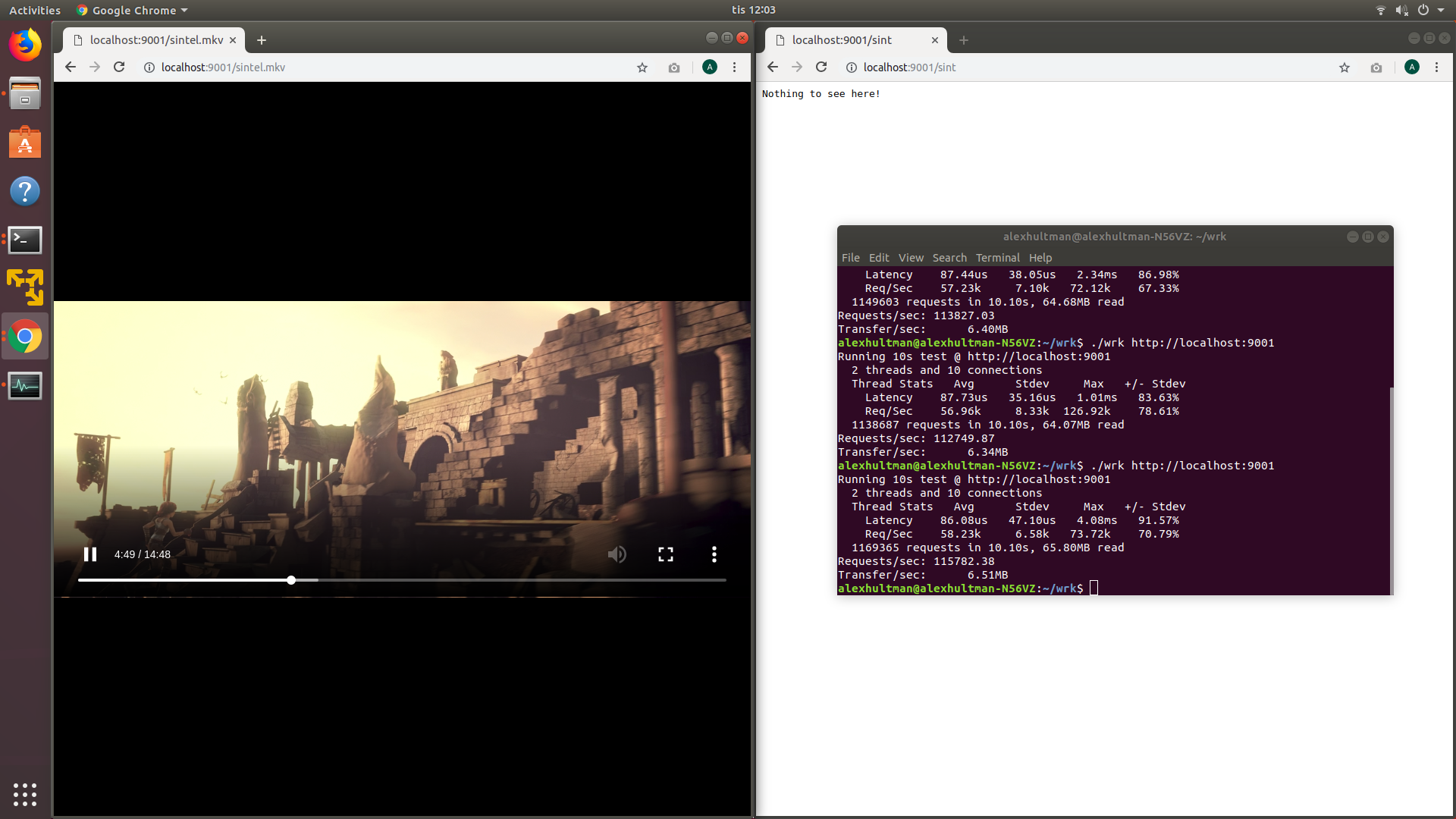| examples | ||
| misc | ||
| src | ||
| tests | ||
| uWebSockets@ba10536f50 | ||
| .gitmodules | ||
| LICENSE | ||
| Makefile | ||
| README.md | ||

µWebSockets™ (it's "micro") is simple, secure & standards compliant web I/O for the most demanding[1] of applications.
NPM install
While not physically hosted by NPM, it's still possible to install using NPM tools like so (npm docs):
npm install uNetworking/uWebSockets.js#binaries
Presenting; faster I/O for Node.js
Every other week a new "web framework" pops up for Node.js. Fastify, Restana, Aero, Micro and so on. Most aim to improve I/O performance, but fall flat. You can't fix an inherent design flaw of an entire stack just by slapping a few lines of JavaScript on top.
µWS.js is a 100% C/C++ web platform completely bypassing the entire Node.js I/O stack. JavaScript-exposed functions and objects are entirely backed by native code all the way down to the OS kernel. This makes it possible to reach unprecedented I/O performance from within Node.js (or any stand-alone V8 build). Scroll down for benchmarks.
In a nutshell
const uWS = require('uWebSockets.js');
const port = 3000;
uWS.SSLApp({
/* cert, key and such specified here, or use uWS.App */
}).get('/whatsmyuseragent', (res, req) => {
res.writeHeader(
'content-type', 'text/html; charset= utf-8'
).end(
'Your user agent is: ' + req.getHeader('user-agent')
);
}).get('/*', (res, req) => {
res.end('Wildcard route');
}).listen(port, (token) => {
if (token) {
console.log('Listening to port ' + port);
} else {
console.log('Failed to listen to port ' + port);
}
});
Streams
Proper streaming of huge data is supported over Http/Https and demonstrated with examples. Here's a shot of me watching real-time streamed HD video from Node.js while simultaneously scoring a 115k req/sec with wrk. For my computer, that's about 5x that of vanilla Node.js (without any HD video streaming/playing).
Benchmarks
Performance retention is about 65% that of the native C++ µWebSockets v0.15. That makes it some 20x as fast as Deno and even faster than most C++-only servers, all from within a JavaScript VM.
| Http | WebSockets |
|---|---|
 |
 |
Build from source
Recursively clone, and enter, this repo:
git clone --recursive https://github.com/uNetworking/uWebSockets.js.git
cd uWebSockets.js
For Unix (Linux, macOS):
make
For Windows (in an x64 developer terminal):
nmake Windows
Test it out
node examples/HelloWorld.js
